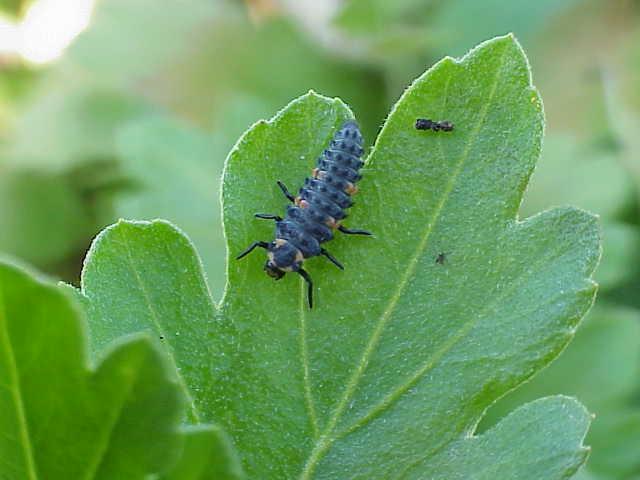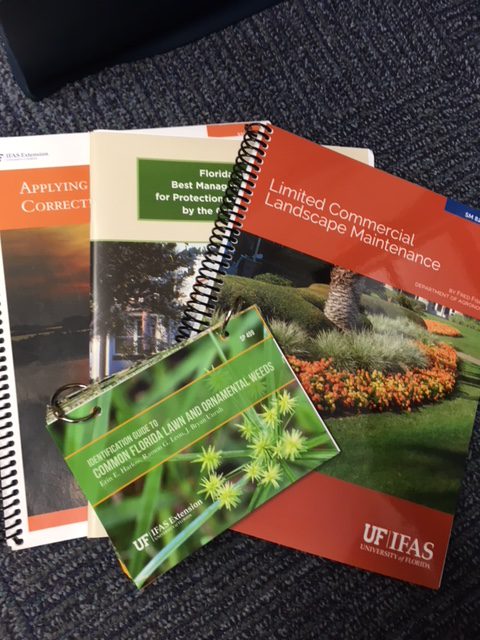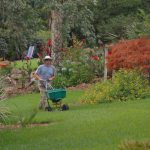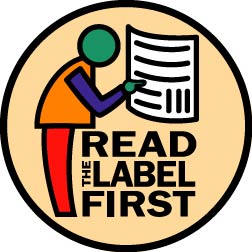
by Larry Williams | Feb 11, 2021

Be careful when bringing firewood indoors. Photo credit: Larry Williams
Your firewood pile could be “bugged.” Many insects like to overwinter in wood. A wood pile is an ideal place for some insects to survive the winter. They don’t know that you intend to bring their winter home indoors during cold weather.
During colder weather, you can unknowingly bring in pests such as spiders, beetles and roaches when you bring in firewood. It’s best to bring in firewood only when you are ready to use it. Otherwise, those pests could become active and start crawling around inside your house. Many insects are potential problems indoors and there are usually control options once insects move into your home. However, preventing the insects from getting inside is the best approach.
If you store wood indoors for short periods of time, it is a good idea to clean the storage area after you have used the wood. Using a first-in, first-out guideline as much as possible will reduce chances of insect problems.
It’s best to keep your wood pile off the ground and away from the house. This will make it less inviting to insects and help the wood dry. It’s not difficult to keep the wood off the ground. The wood can be stacked on a base of wooden pallets, bricks or blocks, which will allow air movement under the wood. The wood can also be covered with a waterproof tarp or stored in a shed. Regardless of how it is stored, avoid spraying firewood with insecticides. When burned, insecticide treated wood may give off harmful fumes.
Some critters that live in firewood can be harmful to humans. To avoid a painful sting or bite from insects, spiders or scorpions (no Florida scorpion is considered poisonous, but they can inflict a painful sting), it is a good practice to wear gloves when picking up logs from a wood pile.
Firewood can be a good source of heat during our cold weather. If you’re careful with how you handle your firewood, hopefully it will warm you, not “bug” you.

by Matt Lollar | Apr 9, 2019
The UF/IFAS Extension and FAMU will be bringing the Florida Pest Management Conference to Milton on April 17th. Attend to earn CEUs for your PCO License. Attendance is free and we are currently seeking sponsors at $80 per sponsoring business/organization. For more details and to register, please visit the conference webpage at Northwest Pest Management Conference.

by Julie McConnell | Sep 25, 2018
Finding professional landscape services for your home or business can be difficult. Unlike many skilled trades in Florida, landscapers/groundskeepers are mostly unregulated. No state exams exist to determine mastery of the basic skills required to perform lawn or landscape maintenance. Ultimately, consumers are left on their own to determine who to hire.
As UF/IFAS Extension Agents, we cannot endorse or provide referrals to companies; however, we can offer some guidance to help you with your search for qualified professionals.
- Be an informed consumer. You don’t have to be an expert in landscapes. Instead you should have an idea of what you envision for your landscape. Familiarize yourself with the type of turf grass and plants you want and learn what the basic maintenance is for their upkeep.
The Florida Friendly Landscaping™ program is a great place to start. Most Extension offices have free books on how to care for Florida landscapes. Or you can find online resources at www.deactivated_site
- Fertilizer and pesticide applications DO require state certifications.

Commercial landscape fertilizer applicators must obtain state certification.
- Fertilizer applicators for hire must maintain the Limited Urban Fertilizer Applicator Certification (Chapter 482.1562, Florida Statutes). Each applicator must have an individual certification. No one can “work under” another applicator’s certificate.
- Pesticide applicators (any substance applied with the intent to kill or inhibit growth of weeds, insects, nematodes, fungi, bacteria, etc.) have two options depending on application site and qualifications.
- Residential or commercial building turf pesticide applicators must hold the Commercial Lawn & Ornamental Pest Control License or be a current Employee Cardholder of the Certified Pest Control Operator
- Residential or commercial ornamental beds (trees, shrubs, flowers) pesticide applicators can hold either Commercial Lawn & Ornamental, as above, or Limited Commercial Landscape Maintenance Certification
- You can check to see if the applicator has a current certification by visiting http://aessearch.freshfromflorida.com/PersonSearch.asp You must enter the applicator’s legal name (name listed on his driver’s license, no nicknames) or their certification number (this will start with two letters)
- Ask about affiliations with professional organizations. Although landscapers are not required to obtain state certifications (excluding fertilizer and pesticide applicators), many take the extra steps to increase knowledge and keep up with industry standards and trends. Voluntary participation in organizations such as Florida Pest Management Association (FPMA), Florida Nursery, Growers and Landscape Association (FNGLA), Florida Turfgrass Association (FTGA), Tree Care Industry Association (TCIA), International Association of Arboriculture (ISA), etc. Some of these groups offer certification programs for professionals to help them increase knowledge.
- Word of mouth/observation. If you see a landscape that looks good, ask who they use and if they are pleased with their service. Talk to friends and colleagues for recommendations.
- Check references. Always ask for references and contact them. Yes, they may only give you the names of happy clients, but you can still ask questions to get a feel for the type of service offered and assess the longevity of the company.
Landscape professionals looking for certification classes should visit Green Industries in the Panhandle Upcoming Events page. 

by Julie McConnell | Jul 22, 2013
 When you contact your local extension office for pest control recommendations you will likely hear “follow the label” over and over again. So, why do we emphasize the pesticide label so strongly when talking to both homeowners and landscape professionals?
When you contact your local extension office for pest control recommendations you will likely hear “follow the label” over and over again. So, why do we emphasize the pesticide label so strongly when talking to both homeowners and landscape professionals?
There are many important reasons why you should always read and follow label instructions.
- The Label is the Law – using a pesticide in a manner that is inconsistent with the label is a violation of the Federal Insecticide, Fungicide, and Rodenticide Act (FIFRA). Using a product inconsistent with the label includes, but is not limited to: rate of application, use on site not labeled for control, use on plants/lawns not labeled, frequency of application, method of application, distance from water sources, etc.
- Safety of Humans – using a product incorrectly can cause harm or even lead to death
- Safety to Non-target Organisms – this includes non-target insects, reptiles, birds, fish, mammals, and plants which can lead to negative impact on environment and economy
- Effectiveness of Product – millions of dollars are spent to figure out the most effective way a product works best, follow their instructions! (remember the manufacturer wants the product to be effective so that you’ll recommend to others and buy it again)
- Increased Resistance Decreases Control – improper application and a failure to rotate products as part of an integrated pest management program can increase likelihood of resistant pest populations
Before shopping for any pesticides, do some research:
- Has the pest been identified properly? What life cycle stage is the pest at? Most pesticides have different levels of efficacy depending on life cycle of target. For example, glyphosate works best on young plants that have not yet flowered. Your local extension office can help with identification and timing of control methods
- Can you control the pest with cultural practices such dethatching, irrigation, fertilizer, or mowing height changes? Start with the least toxic method of control and only work up if ineffective
- Read the label before you buy to be sure that it is labeled for your plant /lawn, target pest. The label will also tell you what equipment you’ll need to mix and apply and safety equipment. If product is not ready to use, be sure you can follow mixing and application procedures safely
- Are there particular environmental precautionary statements that are relevant to your site?
- How much do you need? Have you measured the area for treatment? Just as you don’t want to make multiple trips to the store, you also do not want a lot of excess chemicals on hand. They have to be stored or disposed of according to label instructions, too
For more information about pesticide labels read EDIS PI-34 Interpreting Pesticide Label Wording.







